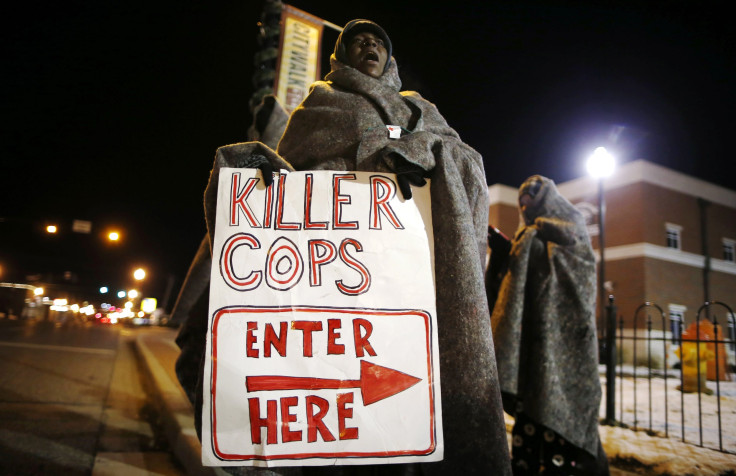Darren Wilson Verdict Update: Grand Jury Decision To Charge Michael Brown Shooter Could Come Friday

A decision from a grand jury considering whether to indict Ferguson, Missouri, police officer Darren Wilson for Michael Brown’s death could be reached as early as Friday, officials have indicated. The jury is preparing to meet at the end of the week for St. Louis County prosecutors to present more evidence in the case. The session could be the grand jury’s last, as deliberations are expected to begin that day, with a verdict coming soon after, according to CNN.
Law enforcement officials have said that if a decision is reached, it would likely not be announced until Sunday. Prosecutors want to give law enforcement 48 hours to prepare for potential protests that could break out in the city following the grand jury’s decision, CNN reported.
In the wake of heavy and sometimes violent protests following the shooting of Brown, who was unarmed, residents of Ferguson have prepared for the worst. Business owners who fear mass looting have fortified their storefronts by boarding up windows and doors. Some residents in and around Ferguson have stocked up on firearms in anticipation of possibly violent riots.
Wilson shot Brown on Aug. 9 during a confrontation between the police officer and the teen. The grand jury has had to weigh Wilson’s claim that he opened fire in self defense against eyewitness accounts that Brown was surrendering when he was shot six times by the officer. The jury was given until Jan. 7, 2015, to reach a decision, but the ruling is expected to come sooner.
If indicted, Wilson could face one of four charges: first-degree murder, second-degree murder, voluntary manslaughter or involuntary manslaughter. If charged, Wilson’s case would go to trial.
If the grand jury chooses not to bring charges against Wilson, the state attorney general could choose to prosecute Wilson. The U.S. Justice Department could also bring charges against Wilson, but they would need to meet a high legal standard for a successful civil rights prosecution.
Prosecutors have said they would make public all the evidence and testimony the grand jury considered in the case against Wilson, however, there is concern for the safety of jury members and witnesses should their identities be revealed. Officials are weighing whether to redact names of witnesses for their protection, according to CNN.
© Copyright IBTimes 2024. All rights reserved.






















